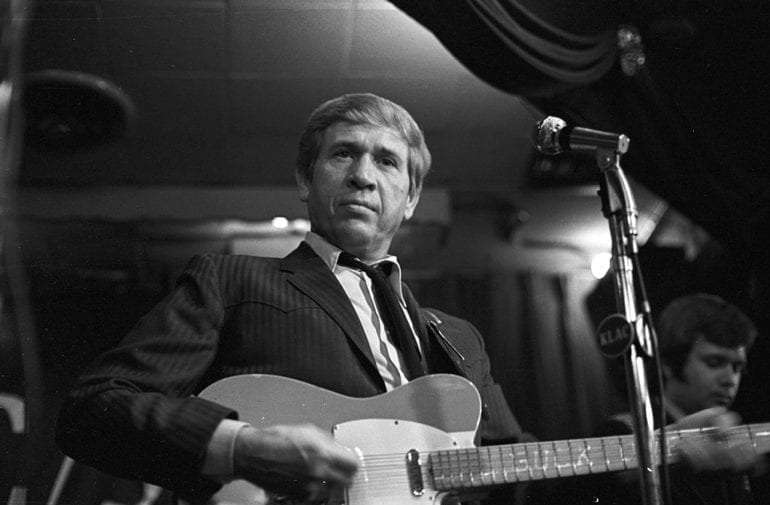
Heartache in a Twang: A Lament for Love That Can’t Be Tamed
Released in 1961, “Foolin’ Around” by Buck Owens not only solidified his ascent as a defining voice of the Bakersfield Sound but also climbed to number two on the Billboard Hot Country Singles chart, affirming his deep resonance with a nation aching for songs that spoke plainly—and poignantly—about love’s contradictions. Featured on his album Buck Owens Sings Harlan Howard, the track captures Owens at a pivotal juncture in his career, where sharp songwriting met the raw clarity of honky-tonk ethos, setting him apart from the smoother Nashville polish of the era.
To understand “Foolin’ Around”, one must step into the smoky bars and wide-open highways of early ’60s California country. Co-written by Buck Owens and legendary songwriter Harlan Howard, the song is deceptively simple—a hallmark of country music at its most potent. In just over two minutes, it lays bare a man’s self-recrimination, voicing both an acknowledgment of romantic infidelity and a sorrowful awareness of the pain he’s caused. It is not just an admission; it’s an elegy for a love already teetering on the brink.
The brilliance of this composition lies in its lyrical economy. “I know that you’ve been foolin’ around on me right from the start / So I’ll take back my ring and I’ll take back my heart,” Owens sings with a voice that is both resigned and resolute. There is no melodrama here—only truth delivered with the crispness of a Telecaster’s bite. That guitar, played in Owens’ signature style with Don Rich likely providing harmony and instrumental support, twangs like footsteps down a lonely road, amplifying every word with emotional precision.
But beneath its surface-level narrative of romantic betrayal, “Foolin’ Around” speaks to something more universal: the self-sabotaging nature of love when pride and passion collide. The narrator isn’t merely a victim; he’s complicit in the game, aware that his own actions mirror those he condemns. “Maybe I should have known from the start you’d be untrue,” he concedes—not with bitterness, but with a weariness born of too many nights spent staring at a ceiling fan spinning regret.
Musically, this track exemplifies why Buck Owens would come to redefine country music for a generation disillusioned with overproduced string sections and crooned affectations. The instrumentation is lean yet potent: pedal steel weaves through each verse like smoke curling under a barroom door, while Owens’ vocal delivery remains clear-eyed and unflinching—never pleading, never posturing.
Culturally, “Foolin’ Around” stands as both a cornerstone of Owens’ rise to prominence and an early signpost pointing toward the eventual emergence of Outlaw Country. It resonates because it does not try to redeem or romanticize its narrator; instead, it offers an unvarnished snapshot of human frailty. This is country music as confessional—plainspoken poetry grounded in real pain.
In retrospect, what makes “Foolin’ Around” endure is not merely its chart success or expert musicianship but its emotional honesty. Like many great country songs of its era, it whispers truths that are often too jagged to speak aloud. And as such, it lingers—not just in jukeboxes and record grooves—but in the quiet reckoning we all face when love goes wrong and we’re left holding only echoes.